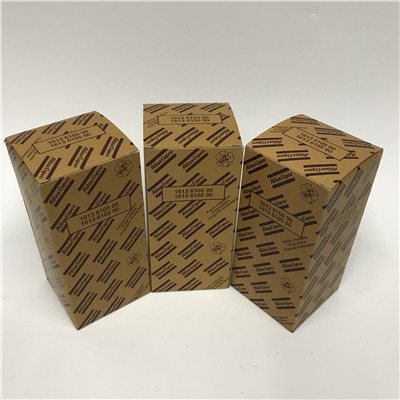Introduction:

Compressor engines play a crucial role in various industries, ensuring the smooth functioning of operations. However, these engines generate condensate that consists of oil, water, and other contaminants. Effectively separating the oil from compressor condensate is not only vital to protect the environment but is also mandated by law in most countries. In this blog, we will delve into the significance of oil-water separation for compressor engines and understand why it's essential for the betterment of both business operations and the environment.
The Environmental Implications:
1. Prevention of Water Pollution:
Compressor condensate often contains harmful hydrocarbons and other pollutants that can have detrimental effects on aquatic life if released into water bodies. Oil-water separation ensures that the water, once purified, can be safely discharged without causing harm to ecosystems.
2. Adhering to Environmental Regulations:
To maintain a sustainable operational approach, businesses must comply with environmental regulations set forth by governing bodies. Failing to separate oil from compressor condensate can result in severe penalties and legal consequences.
3. Resource Conservation:
By effectively separating oil from the condensate, businesses can reuse and recycle the purified water for various non-potable applications within their facilities. This reduces the demand for freshwater resources, fostering responsible water management practices.
Enhancing Compressor Engine Performance:
1. Prolonged Equipment Lifespan:
Oil-water separation prevents oil contamination within the compressor, which can lead to premature wear and tear, ultimately reducing the engine's lifespan. Separating the oil ensures that only clean air is compressed, extending the equipment's operational efficiency and reducing maintenance costs.
2. Maintaining Optimal Performance:
Compressor engines operate at their best when they have access to clean air without oil impurities. Separating oil from the condensate ensures that the compressor's performance remains consistent, leading to higher productivity, minimized downtime, and enhanced operational efficiency.
3. Consistent Product Quality:
Industries relying on compressed air for various manufacturing processes need to maintain consistent product quality. Oil contamination within the compressor can result in defects or product rejection. Effective oil-water separation guarantees the production of high-quality products, reducing wastage and enhancing customer satisfaction.
How Oil-Water Separators Work:
1. Gravity Separation:
Oil-water separators utilize gravity to separate the oil from the condensate. The mixture is directed through different chambers, allowing the lighter oil components to rise to the surface, where they can be skimmed or collected for disposal or recycling. The purified water can then be safely discharged or reused.
2. Coalescing Separation:
Coalescing separators employ oil-absorbing materials or filtration systems to trap and remove oil droplets from the condensate. These separators facilitate the efficient removal of oil, yielding cleaner water suitable for discharge or reuse.
Conclusion:
Oil-water separation is a critical process that protects the environment, ensures regulatory compliance, and enhances the performance of compressor engines. By effectively separating oil from condensate, businesses not only demonstrate their commitment to environmental sustainability but also benefit from prolonged equipment lifespan, reduced maintenance costs, and enhanced productivity. Adhering to this practice promotes responsible water management and aids in conserving valuable resources. As compressor engines continue to play a pivotal role in various industries, prioritizing oil-water separation becomes imperative to strike a balance between operational efficiency and environmental protection.
Keywords: oil for compressor engine, oil-water separation, compressor condensate, environmental regulations, water pollution, resource conservation, compressor engine performance, gravity separation, coalescing separation.
